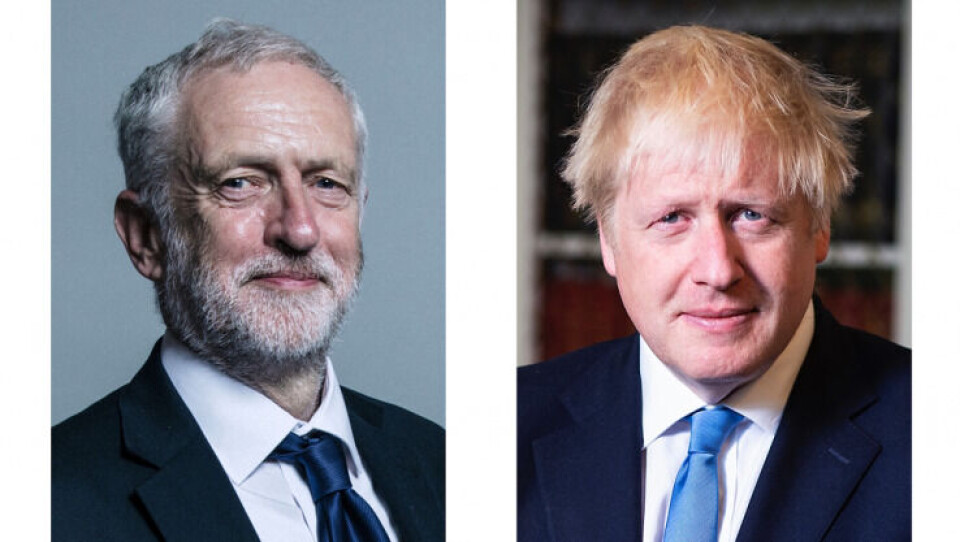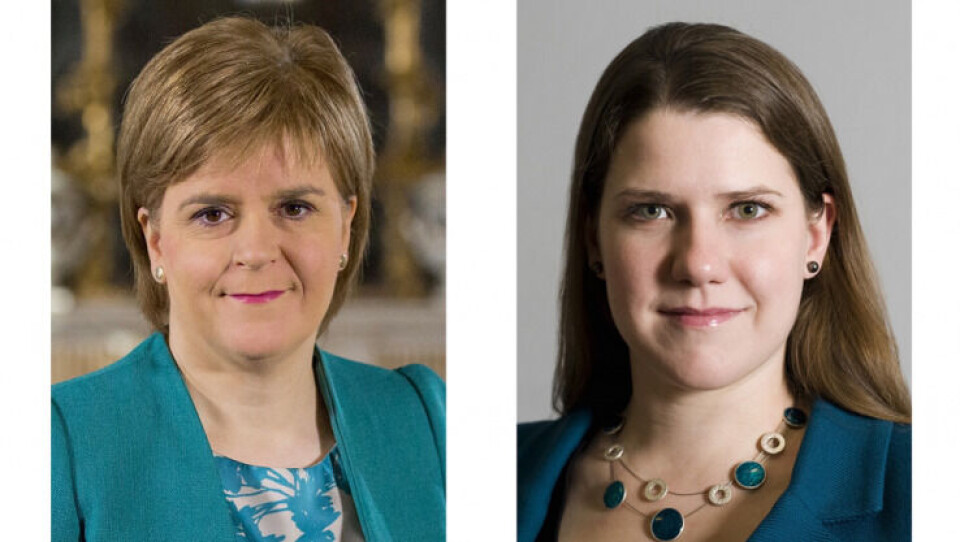article> Opinion/Politics
Brexit & The UK Election Outcome

After the general election of the 12th of December 2019 in the United Kingdom the Conservatives claimed a large majority in Parliament giving them a clearer road towards Brexit on the 31st of January.
by David Abidaoud
Contributing Writer
Just over a month ago on the 12th of December, the United Kingdom saw the highly anticipated early 2019 general election. The results gave the Conservative party, led by current Prime Minister Boris Johnson, a huge success. They saw an increase in the number of seats held since last election, and their close competitors, the Labour party - led by Jeremy Corbyn - saw a disastrous outcome. In fact, the number of seats help by Labour is the lowest it has been since 1935. Hence, the outcome of this election gave a solid majority of seats in the house of commons to Conservative MPs.

Jeremy Corbyn (left): Leader of the Labour Party
Boris Johnson (right): Prime Minister and Leader of the Conservative Party
The United Kingdom is split into constituencies, which are legislative regions of the country. Each constituency has an elected Member of Parliament (MP). These MPs are elected during a general election throughout the country and the party with the most MPs can then form a government. The ‘government’ is responsible for the oversight of civil services and government agencies. In tandem with the House of Lords and the monarch, the government is expected to lead the nation and policies. The leader of the government is also generally expected to represent the United Kingdom in international affairs.
This general election was a quite controversial one due to perceived poor positions by both parties. The Conservative party, led by Boris Johnson, has Brexit at its heart, which is an issue that has now dragged on for almost 4 years since the referendum. The Conservatives had been unable to provide an acceptable exit strategy that both the European Union and the British Parliament would agree to yet and this was the chief problem for which the previous conservative Prime Minister, Theresa May, resigned. Boris Johnson has been determined to push Brexit through, even under the conditions of a no-deal Brexit, whereas many MPs have followed suit merely because the issue has remained unresolved for so long. The case for many of them is that they just want to “get it done”. Meanwhile, Labour did not have a very concrete and defined position on Brexit. The base supporters of Labour have historically been the working-class and middle-class liberals.
Labour, led by Jeremy Corbyn, was quite unsuccessful this election and is likely in part because of a very unorthodox manifesto. Both parties promised increasing spending on public services like the National Health Service (NHS), which is perceived to be struggling. In the case of Labour, they promised a much larger increase in those funding commitments. The tax goals of Jeremy Corbyn were significantly higher than the goals of the Conservative party. They aimed to raise corporate taxes significantly and aimed to generally increase the amount of taxation. There was the intent to tax multinational global income as opposed to only their domestic incomes, with the aim of implementing a financial transactions tax, as well as remove corporate tax reliefs and credits. Meanwhile the conservatives aimed to change relatively little about the existing tax scheme.
Although, the Conservative party and Labour were the main players in the field of this election there were also two other parties which received significant support: the Scottish National Party (SNP) and the Liberal Democrats. Since the last election they’ve held a smaller number of seats than the two large parties, yet they still had an active role in the decision making of the government. The SNP won more seats this year than the last while the Liberal Democrats lost one seat. However, the conservatives now have more seats than all the other parties put together, so the role of these parties in voting will be even less than before.

Nicola Sturgeon (left): First Minister of Scotland and Leader of the SNP
Jo Swinson (right): Leader of the Liberal Democrats until the 13th of December 2019
What does all of this mean for the United Kingdom? The growth of the SNP has given Scotland a stronger voice in the political landscape. Scotland has always had ideological and identity differences when it came to their place in the United Kingdom and compounded with Brexit, for which most Scots voted to remain in the European Union, their stronger political position might see them push for independence. Labour’s failure will see Jeremy Corbyn no longer run for the next election and likely step down while the triumph of the conservatives will mean it will be easy for them to pass policies and reforms. The coming years will likely see many conservative policies enacted unless further fragmentation occurs within the ranks of the party. Finally, Boris Johnson’s Brexit plan looks likely to succeed and the UK will leave the EU this Friday 31st of January as long as the European Union plays ball.





